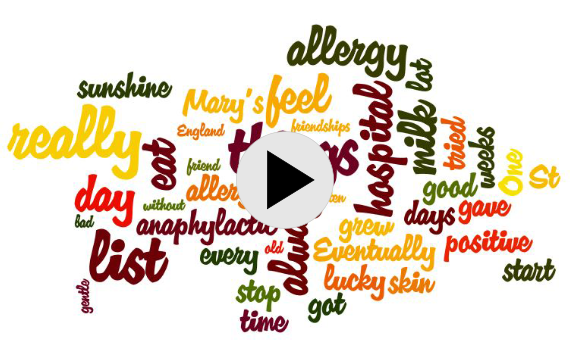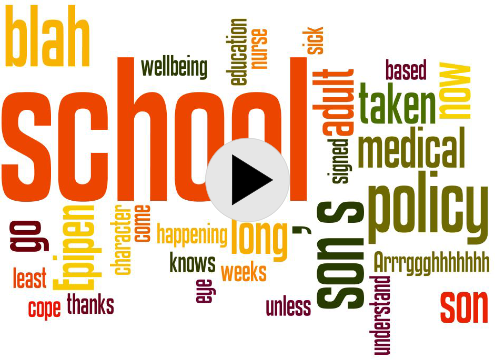Healthcare transition
The 11to25 hub, built to help young people, parents and professionals navigate the transition to adult care.
Introduction
Imagine a child living with a chronic condition, cared for by a dedicated children’s healthcare team. There is a count-down timer on this team’s care. One day, usually at the age of 16 years, the children’s healthcare teams have to say good-bye and adult healthcare teams will take over.
Imagine having to make this change without support.
Imagine falling into the gap between the teams.
The process of preparing for the move from children’s services to adult services, from parent-managed to self-managed healthcare is called Healthcare Transition.
Healthcare Transition is a period of learning about:
- self-care – what it is and what it involves
- how to support young people with self-care
- how to make accessing healthcare for young people easier and fairer.
|
It was a scary thing. I thought at 16 they're just going to drop me and I'm going to be making all these really big decisions. It was on my mind quite a lot, so it really did help to say, "Well I can, I am capable of it. I can take charge." And even something small, like starting small with having mom sit outside, not completely not there, she's near, but she's just outside and then she can come back, we discuss together. And then eventually as time went on, it was just me talking, and whether mom was there or outside, it was just me talking. So it was also the time, taking that time to do it slowly, and instead of being intimidated on your first adult care appointment.' Seema Young person |
In the words of William Bridges, every transition begins with an ending and moves towards new beginnings. At the ending, we will identify what will be lost and how to manage this. Then you move into the neutral zone, when the old is gone and the new not fully operational yet. New beginnings involve new understandings, values, attitudes and an understanding of the part you play, how to contribute and participate most effectively.
So, let’s get started on a journey that will help you understand healthcare transition and why it matters!
What we'll be covering
We will be looking at:
- what healthcare transition is and when it starts
- how healthcare transition affects you
- the stages of healthcare transition.
We will also:
What is healthcare transition anyway?
Let’s look in a little bit more detail at what healthcare transition actually is.
Healthcare Transition is a period of change and learning for young people and their support networks – friends, family, teachers, health and social care teams. During this period, health and social care shifts from being ‘done by others’ to being done by the young person themselves.
Healthcare Transition is a bit like the move from primary to secondary school, where new skills are learned and you become increasingly independent; you could think about learning how to manage your own health a bit like another GSCE topic.
Depending on how ready the young person is, it starts around the age of 11 to 13 years and young person-focussed care should ideally continue until early adulthood at around the age of 25 years. Healthcare transition is a process for young people and parents, which includes all young people, especially also those who may not be fully independent as adults.
Just as new topics have to be learned at school, the topics of ‘self-care and self-advocacy’ have to be understood by the support networks who will teach and encourage the young person as they learn and practise the new skills.
So, what does healthcare transition mean for you?
If you are a young person – it means learning to speak up for yourself, knowing your medicines, how to get them, how and when to use them, knowing how to find good health information, how to get help, making sure that you don’t miss out on your care and that you don’t miss out on living a good life just because you have a health condition.
If you are a parent or carer – it means gradually taking a step back, allowing your young person to be more independent and make their own decisions, but being prepared to be their back-up when things are difficult.
|
'So he is falling into this big black hole. And his medical care has just fallen into a black hole from where we were with Sharon, where she looked at everything with him. It’s kind of a catch-22. He wants to be independent but he doesn’t want to go to medical appointments on his own.' Jacqui Parent |
If you are from a healthcare team – a nurse, a doctor, administrator, a manager, therapist – it means adjusting how you speak to young people in a way that is appropriate for their age and their understanding. It means knowing the basic milestones and life skills in healthcare transition and understanding why young people deserve to have your attention and respect.
If you work in education or the workplace – for you, it means understanding the added life skills young people with chronic health needs have to master, how this may affect them in daily life and how you can support them to reach and maintain their full potential.
What are the stages involved in healthcare transition?
As a young person moves through the transition, there are a few key stages and the odd milestone:
- The first stage will just be getting started – the paediatrician and other members of the healthcare team will set the scene and explain the process
- They will encourage the young person to communicate directly with health and social care and with schools and other educational institutions.
- During this phase, it’s important for parents/carers and families to encourage and support their young person to speak up for themselves.
- Neurodiverse young people who may not be fully independent, for example with learning disabilities or autism, should be supported by keyworkers and carers as well as their parents to have a say in their care as much as is possible for them.
- Gradually, the young person will get to know their medications and treatments and start taking responsibility for them; this includes knowing how to access treatment, including ordering medications.
- Over time, the young person will start to manage and keep track of their own information; this will also help them be on top of communications with the healthcare team.
- By the time the transition is complete, the young person should feel confident and competent about managing their condition, and about communicating openly and honestly with teachers, managers, friends as well as health professionals.
|
‘...and Dr Gore, she was like, "Well, you explain. Explain about what we want to do, next steps for the treatment options available, and what you want to do." So that was really empowering.’ Seema Young person |
Lived experience
Stories are a powerful way of learning and can help put your learning into context.
Please think about how the topics we have covered here relate to these two stories – one from a young person and one from a parent – and your own.
Sunshine
Invisibility
Summary
Hopefully you can now:
- explain what healthcare transition is and why it is important
- identify the people who are involved in healthcare transition
- see that everyone is responsible for helping to make the journey into adult care a successful and good one.
- list some of the phases and milestones involved in healthcare transition.
If you want to know more....
There are plenty of ways to find out more. One great one is to use your NHS account to access services online on your computer, tablet or mobile phone.
Find more information on the 11to25hub
Why not dip into one of our other modules, where you can find out about other aspects of healthcare transition in more detail.
Bust the jargon!
Whether you’re a young person, a parent or a professional you’ll have realised that there’s a lot of jargon in the health and social care systems. This jargon buster from Think Local Act Personal may help. Just type in a term…
External resources
Here are some more resources that you may find helpful, engaging and informative:
- From the Pond into the Sea, from the Care Quality Commission, is a summary of their report looking at the arrangements made for children with complex health needs as they move from children’s to adult services.
- The NICE guideline “Transition from children’s to adults’ services for young people using health or social care services” covers the period before, during and after a young person moves from childrens’ to adults’ services. It aims to help young people and their carers have a better experience of transition by improving the way it’s planned and carried out. It covers both health and social care.
- The Ready Steady Go website provides information about how the programme works.
- The Royal Marsden NHS Foundation Trust Transition Hub aims to provide “Everything you need to know about moving from paediatric to adult care”
- You’re Welcome’: establishing youth-friendly health and care services from the Department of Health provides guidance on establishing youth-friendly health and care services.
And here are some things you may find thought-provoking and/or entertaining:
- Everything, Everything by Nicola Yoon
- Five feet apart, by Rachael Lippincott
- The Fault in Our Stars, by John Green


